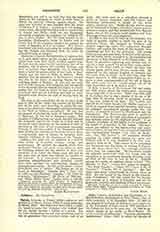

Cally, PIERRE, philosopher and theologian, b. at Mesnil-Hubert, department of Orne, France, date of birth uncertain; d. December 31, 1709. In 1660 he was appointed professor of philosophy and eloquence in the University of Caen, and in 1675 president of the College des Arts in the same city. In 1684 he assumed charge of the parish of Saint-Martin. He wrote a course of philosophy, “Universae philosophiae institutiones” (Caen, 1695), in which the theories of Descartes are explained and defended. He worked with great zeal for the conversion of Protestants, and gave conferences in which he endeavored to solve their difficulties. For the same purpose he composed a book on the Eucharist, “Durand commente, ou accord de la philosophie avec la theologie touchant la transsubstantiation de l’eucharistie” (Caen, 1700). In it he denies the existence of absolute accidents and, instead of a transubstantiation, admits a transformation. Before and after the consecration the matter of the bread remains the same; by the consecration the matter of the bread becomes the matter of the body of Christ. A publisher in Caen was asked to print sixty copies of the work to be sent to competent judges before making it public. In fact, eight hundred copies were printed immediately and sold. At once the book became the subject of many discussions and was bitterly denounced. On March 30, 1701, Bishop de Nesmond of Bayeux condemned seventeen propositions taken from tally’s work as “false, rash, erroneous, scandalous, injurious to the Council of Trent (Seas. XIIL, c. iv and canon ii), destructive of the real presence of the body of Christ in the Eucharist, and leading to heresy concerning transubstantiation”. Lally made a public retraction on April 21 of the same year. In addition to the works already mentioned he wrote “Doctrine heretique et schismatique touchant la primaute du pape enseignce par lea lesuites clans leur college de Caen” (1644); “Discours en forme d’homelies sur lea mysteres, sur les miracles et sur les paroles de Notre-Seigneur Jesus-Christ qui sont dans l’evangile” (Caen, 1703), and published a new edition with commentaries of Boethius’s work, “De consolatione philosophica” (Caen, 1695).
C. A. DUBRAY

